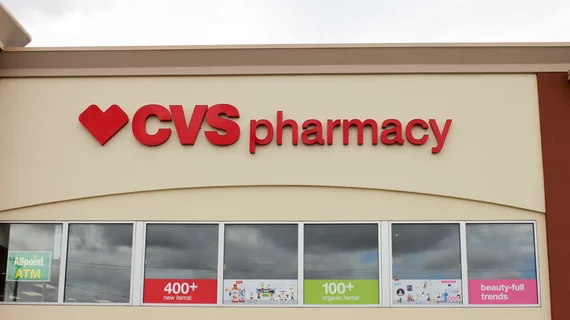DOJ sues CVS over unlawful opioid prescriptions and reimbursement
The U.S. Department of Justice (DOJ) announced it has filed a lawsuit against CVS Health, alleging its pharmacies dispensed controlled substances unlawfully, in violation of the Controlled Substances Act and the False Claims Act.
According to the DOJ, CVS filled opioid prescriptions that "lacked a legitimate medical purpose,” then “sought reimbursement from federal healthcare programs for unlawful prescriptions.” The agency said these incidents began in October 2013 and continue to present day.
The lawsuit was announced Wednesday.
In terms of the specifics, the DOJ accused CVS of providing patients with "dangerous and excessive quantities of opioids” and refilling prescriptions early, in violation of the law. Further, the agency said CVS pharmacists would fill opioid prescriptions for patients who also took muscle relaxers and benzodiazepines, which when combined as a “trinity” signals abuse.
The DOJ said the company was often aware of filling prescriptions from “pill mill” providers who were likely committing fraud.
“The complaint alleges that CVS’ violations resulted from corporate-mandated performance metrics, incentive compensation, and staffing policies that prioritized corporate profits over patient safety,” the DOJ wrote. “CVS set staffing levels far too low for pharmacists to both meet their performance metrics and comply with their legal obligations.”
The agency went on to allege that CVS also “deprived its pharmacists of crucial information” that could have mitigated the number of illegal prescriptions. Specifically, the DOJ said pharmacists were forbidden by the company from warning each other about patients and providers of concern.
Pharmacies would then go on to bill government healthcare programs—including Medicare and Medicaid—for the fraudulent prescriptions, ostensibly profiting while fueling the opioid epidemic, the DOJ said.
CVS responds to the lawsuit
In a statement, CVS denied the allegations, telling HealthExec they cooperated with the DOJ investigation for more than four years and "strongly disagree with the allegations and false narrative" in the lawsuit.
"We will defend ourselves vigorously against this misguided federal lawsuit, which follows on the heels of years of litigation over these issues by state and local governments—claims that already have been largely resolved by a global agreement with the participating state Attorneys General," a company spokesperson wrote.
"The government’s lawsuit seeks to impose a shifting standard for pharmacy practice. Many of the litigation theories laid out in the complaint are not found in any statute or regulation, and relate to topics on which the government has declined to provide guidance. Each of the prescriptions in question was for an FDA-approved opioid medication prescribed by a practitioner who the government itself licensed, authorized, and empowered to write controlled-substance prescriptions," they added.
This isn’t the first time the pharmacy chain has been accused of crimes related to opioid prescriptions. Earlier this year, CVS settled a case with the city of Baltimore for $45 million after being accused of contributing to addiction and overdoses in the metro area.

